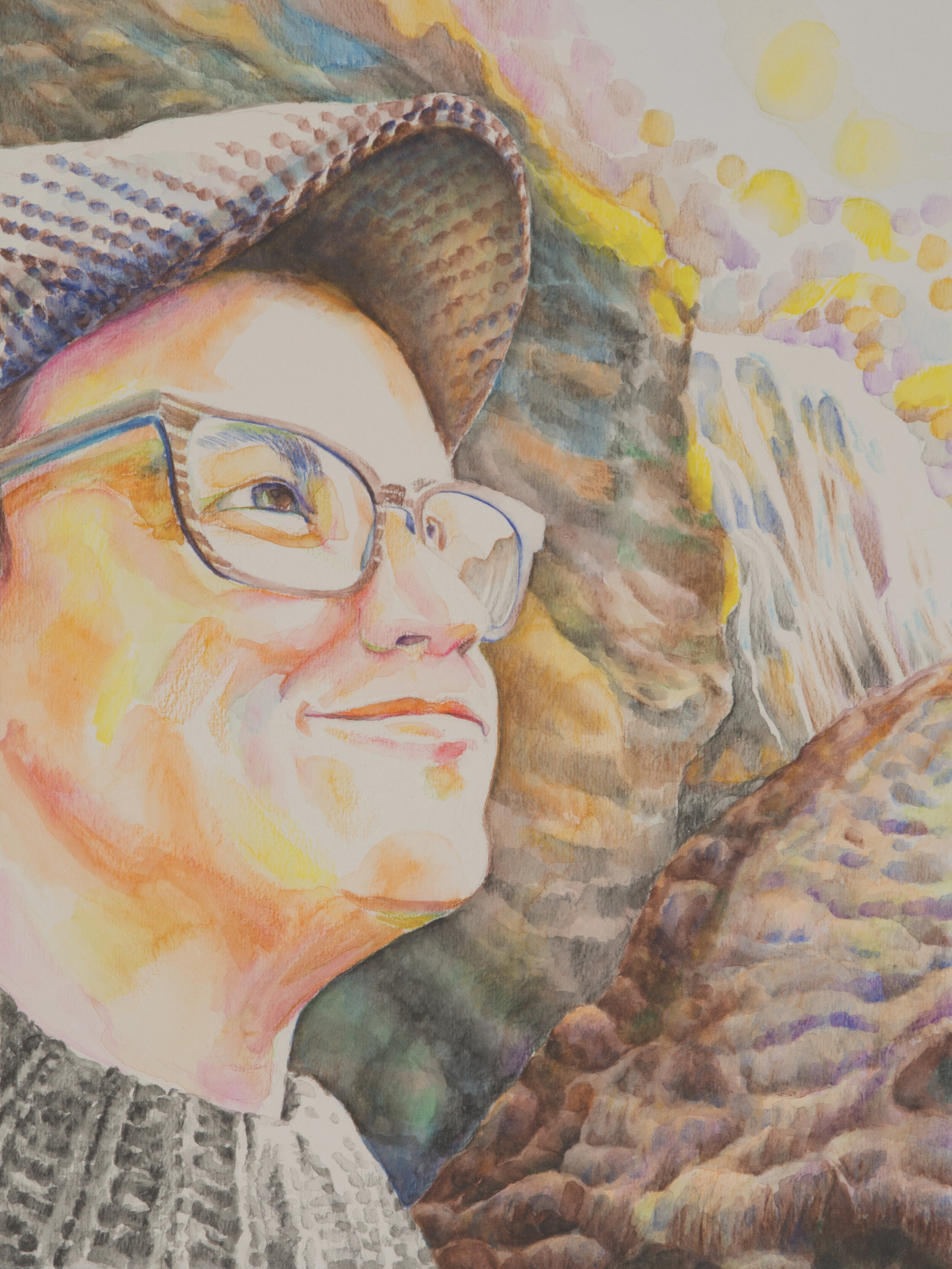The following is a sample profile from the book Holy Troublemakers & Unconventional Saints by Daneen Akers.
Megan Rohrer
A joyful energy moves through the congregation on a Sunday morning in 2010 at St. Mark’s Lutheran Church in San Francisco. Today is going to be a day of celebration and justice, a day when a very unfair history is going to made just a little bit right. Today, seven LGBTQ Lutheran pastors will be officially welcomed back to the Evangelical Lutheran Church in America, the largest Lutheran denomination in the U.S. For the last twenty years, openly LGBTQ pastors have not been allowed by church officials to serve as pastors, although several congregations defied those rules because they knew they weren’t right or fair.
One of the pastors being officially welcomed back in this special service is Megan Rohrer, the first openly transgender pastor to be ordained in the Lutheran Church. Megan’s smile is the kind of smile that brightens a whole room. This is a day when, finally, the official denomination can be blessed by the ministry of LGBTQ people called to serve God and others through pastoring.
Illustration by Jay Muir
Megan did not get to this place without struggle. Born in1980 in Sioux Falls, South Dakota into a religious family, Megan calls that area the “cultural heartland of Lutherans” and says that people are generally taught to fit in and not make news about anything.
But Megan didn’t fit in. First, Megan came out as lesbian. And then, later, as transgender. “As you can imagine,” Megan says, “South Dakota is not the most fun place to figure out that you’re trans.”
They were bullied in their Lutheran college for being lesbian. “People would write Bible verses about how it would be better if I had drowned in the ocean than to tell anyone else that being gay was okay,” Megan says. (Note: Megan prefers the gender neutral pronouns of “they/them” rather than “he/him” or “she/her” because they identify with both the male and female aspects of themselves, but English doesn’t currently have a pronoun for that.)
Most people might leave religion all together when made to feel so unsafe and unwelcome, but not Megan. “As I became more queer, I also became more faithful,” Megan says. In fact, the religious intolerance actually motivated them to go to graduate school to become a pastor. “The amount of religious abuse that people spoke near me and around me was enough to make me want to study religion. I did a lot of studying, and I ended up becoming a pastor just to vocalize what I knew in my gut was okay.”
In 2014, Grace Lutheran church in San Francisco called Megan to be their pastor. The church has grown since Megan became the pastor, and Megan brings new energy to what used to be an older and declining congregation. To Megan, being together in church every week is part of what helps us remember what Jesus said is most important—love. “Church is the place where we repeat through word, song, and embodiment, God’s unshakeable love for us and our neighbor. Each week we forget. Each week we try to remember again.”
In addition to pastoring, Megan has spearheaded many programs to shelter, feed, and help people who are homeless in San Francisco. Megan has helped grow thousands of pounds of fruits and vegetables in community gardens to share with hungry people, made countless sandwiches to give out, led a choir for homeless people, and worked with other local pastors to be on the streets at night when homeless people might need a listening ear and some warm socks.
Helping others is just part of who Megan is. “I’ve just always been the kind of person where—if your life is going to fall apart, it’s going to fall apart while you’re standing next to me so I can help you put it back together.”
What helps remind you of God’s unshakeable love for you and your neighbor?
Glossary Terms
Lesbian
A woman who can fall in love with another woman.
LGBTQ
The acronym for Lesbian, Gay, Bisexual, Transgender, and Queer people; other commonly used acronyms for gender and sexual minorities include LGBTQI, LGBTQIA, and LGBTQ+.
Queer
A word used to identify with and celebrate people of all gender identities and all the ways people love each other; was used as a mean word in the past, but is now being re-claimed by many people as a positive term.
Transgender
The opposite of cisgender; when your gender identity (how you feel inside) is different than what sex doctors/midwives assigned to you when you were born (boy, girl, or intersex).
Read another sample chapter from the Holy Troublemakers & Unconventional Saints book by Daneen Akers.



